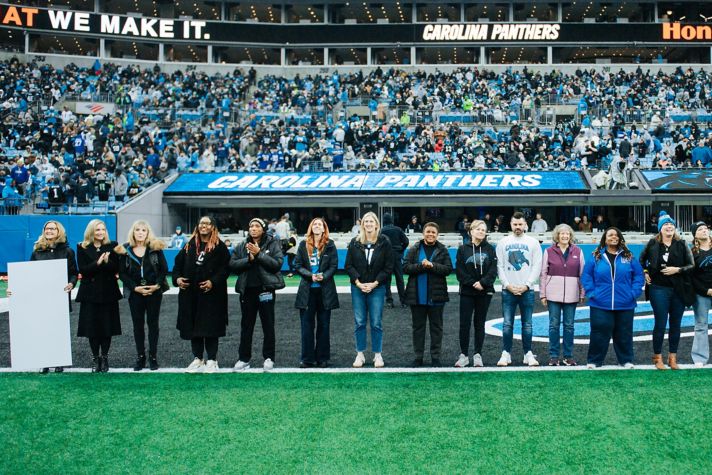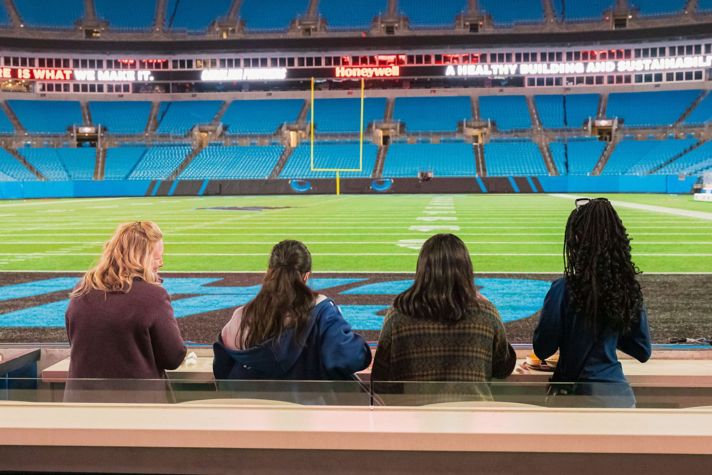-
Global
-
Africa
-
Asia Pacific
-
Europe
-
Latin America
-
Middle East
-
North America
- |
- BUSINESSES
- |
- Contact
- |
-
Global
-
Africa
-
Asia Pacific
-
Europe
-
Latin America
-
Middle East
-
North America
- |
- BUSINESSES
- |
- Contact
- |
You are browsing the product catalog for
You are viewing the overview and resources for
- News
- 5 Things to Know About the Future of Sustainability Education
5 Things to Know About the Future of Sustainability Education
With careers in STEM and sustainability on the rise, teachers need resources and training to empower their students to think critically about climate change. Learn how a new education initiative plans to help.
Today’s students want to be involved in creating a more sustainable future, but classrooms and educators need high-quality, relevant learning materials to connect today’s challenges to tomorrow’s problem solvers.
That’s why Honeywell is joining with Discovery Education and other industry and non-profit partners to launch the Sustainability Education Coalition, a transformative partnership to address a growing sustainability education gap in K-12 classrooms across the United States and beyond.
“The Sustainability Education Coalition offers the opportunity to create broader awareness of sustainability topics, which is central to Honeywell's belief that everyone can play a part in moving towards a more sustainable future society," said Gavin Towler, Honeywell’s Chief Scientist for Sustainability and the executive sponsor for the program.
Here’s what to know about the state of sustainability education, as well as the impact the Sustainability Education Coalition aims to make.
1. Many US teachers want to educate on climate change but need training and reliable resources
Recent statistics reveal a concerning trend: while a large majority of teachers recognize the importance of teaching students about climate and sustainability, only half of them are currently addressing these vital topics within their classrooms.
According to a 2019 NPR poll, 86% of educators agree that it’s important to teach students about climate change, but fewer than half of them are speaking about climate change with their students. 75% of educators say that they do not have the resources or training to teach about the climate crisis.
2. Career opportunities tied to sustainability are on the rise
From robotics to data science, exposing students to career paths in science, technology, engineering and math (STEM) early on can help inspire their futures. The same goes with career paths that pertain to solving sustainability-related challenges.
The World Economic Forum's Future of Jobs Report emphasizes the growing importance of green skills, such as environmental science, renewable energy, and sustainable development, in the job market of the future.
The International Labor Organization estimates that the green economy could create 24 million jobs worldwide by 2030.
3. The Sustainability Education Coalition will provide content and resources for teachers
The coalition will empower over 10 million students by 2030 to become global citizens for sustainable development, by connecting K–12 students to relevant educational concepts and content that brings to life the intersections of the environment, economy and society.
4. The coalition will use a five-pronged approach to drive forward sustainability education
The coalition will bridge industry and classrooms at unprecedented scale through:
• Equitable access to high quality learning resources: investing in under-resourced schools so students can benefit from the best-in-class Discovery Education Experience
- Innovative community engagement pathway: introducing global challenges through a local lens; ensuring students can connect concepts to their local communities
- Challenge-based learning informed by partners: delivering engaging, high-quality resources and learning experiences for students
- National visibility: working to promote a national conversation to elevate sustainability education
- Research and impact framework: launching impact studies to measure trends and progression of Sustainability attitudes
5. Honeywell is one of several partners that comprise the coalition
The Sustainability Education Coalition foundation partners are a mix of industry and non-profit organizations committed to closing the sustainability learning gap and include Honeywell, LyondellBasell, Nucor, Subaru, and the National Environmental Education Foundation in partnership with Discovery Education. Learn more about the Sustainability Education Coalition here, and read about Honeywell's commitment to our communities in the 2023 Environmental, Social and Governance Report.
Copyright © 2026 Honeywell International Inc.



